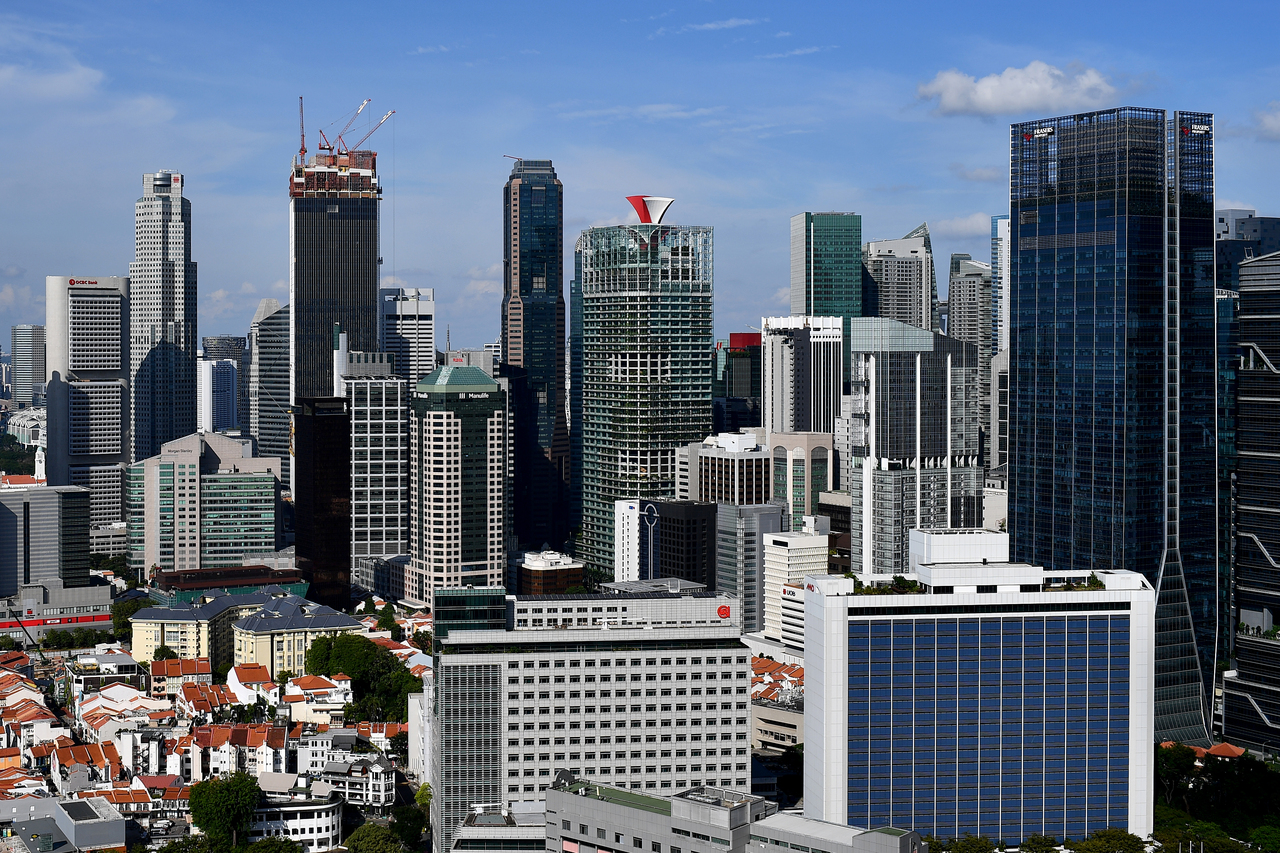Emerging Stronger Taskforce: Alliances for Action are partnerships to drive productivity, pursue sectors that hold promise
Sign up now: Get ST's newsletters delivered to your inbox

AfAs are private-public partnerships to tackle challenges and seize opportunities, and are a key plank of the task force's work.
ST PHOTO: LIM YAOHUI
SINGAPORE - While there are specific areas Singapore can invest in under nine Alliances for Action (AfA), the Emerging Stronger Taskforce conceived of them broadly as three groups of interventions, said its co-chair Mr Tan Chong Meng on Monday (May 17).
They are: sectors where resilience needs to be strengthened and addressed very quickly; those where transformation has to be accelerated; and the ones which promise new growth.
AfAs are private-public partnerships to tackle challenges and seize opportunities, and are a key plank of the task force's work. They involve several companies as well as public sector agencies.
The first group had to make immediate changes in order to find new relevance or new business models, and their workers had to quickly pivot by re-skilling and up-skilling, said Mr Tan, who is group CEO of PSA International.
He cited the AfA on digitalising built environment as an example. It launched a common set of data standards to encourage digital collaboration and integration of work processes across the value chain. "There was a pressing need to increase the resilience of this sector... One uniting force was digitalisation, which could help the companies and workers take on more productive approaches, and also value-added roles," he said.
For sectors where transformation had to be stepped up, he cited how the alliance on robotics developed solutions to address manpower issues and boost productivity in transport and cleaning. It held commercial trials of on-demand private bus services at Singapore Science Park 2 and Jurong Island, to test the commercial viability and public acceptance of autonomous vehicle solutions.
These were done with a view for companies here to export solutions and become global champions, said Mr Tan.
"The use of autonomous solutions in robotics is not foreign in the industrial environment, but in urban spaces and social contexts, many of them are still in the development phases," he said.
As for sectors with potential for growth, Mr Tan cited how the AfA on sustainability identified the voluntary carbon market as an opportunity Singapore is well placed to pursue. It aims to build a marketplace to trade high-quality carbon credits, building on its position in Asia which is a key source of nature-based solutions offsets, its reputation for trust and integrity, and its strengths in professional and financial services and commodity trading.
Said task force co-chair, National Development Minister Desmond Lee: "This growing demand for a green economy, green businesses, green jobs, and green opportunities, presents a chance for Singapore to capture a first-mover advantage."
Mr Tan also cited how the two newer AfAs - on AgriTech and MedTech - have identified areas where Singapore can continue to test and prototype ideas.
The AgriTech AfA is launching a new platform to tackle the issue of scale when it comes to local vegetable production, and could be a launchpad to export AgriTech solutions especially in urban spaces.
Meanwhile, the MedTech AfA has identified in-vitro diagnostics as a key subsector to focus on.
The task force report noted that scaling up these prototypes, and developing solutions to address broader opportunity areas identified by the AfAs, will require sustained effort by industry stakeholders and the Government.
Mr Tan said the themes of digitalisation, connectivity and sustainability, undergirded by strong partnerships that enable local businesses and workers to grow, are inherent across all nine AfAs.


